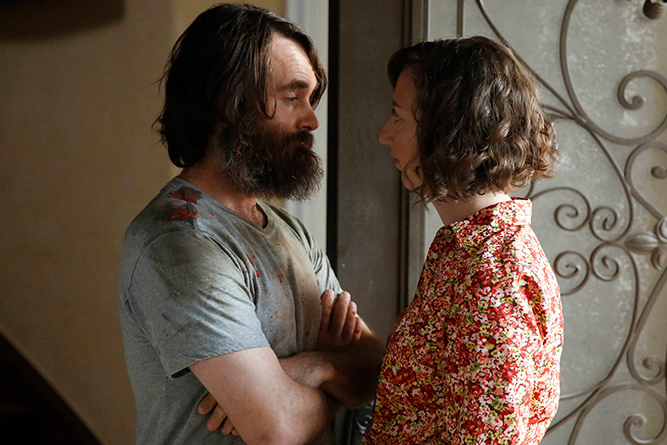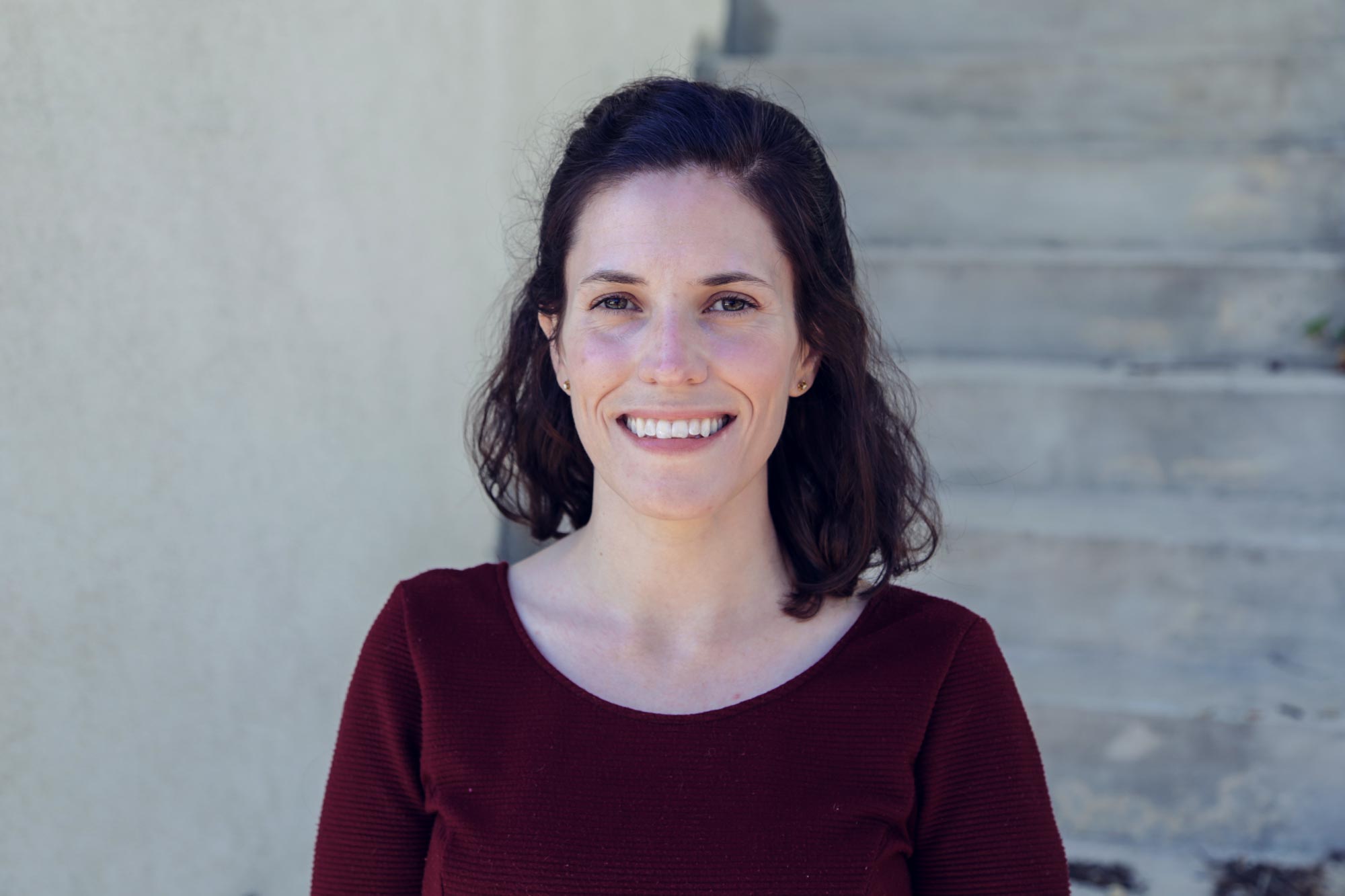Emma Rathbone does miss rainstorms, but she has no regrets leaving cozy Charlottesville after 10 years for sprawling Los Angeles – both places she chose for her creative writing career.
Rathbone is one of those people who always knew what she wanted to do, and she has been successful, according to a number of standards. She earned a Master of Fine Arts degree from the University of Virginia’s well-known Creative Writing Program in 2006, and has produced two novels, “The Patterns of Paper Monsters” in 2010 and “Losing It,” which came out last year. She has published a variety of mostly humorous pieces in the New Yorker, the New York Times and the Virginia Quarterly Review.
In June, her 2013 New Yorker “Shouts & Murmurs” column, “My Wedding Hair,” was reprised on its “Radio Hour,” with Kristen Wiig, the former “Saturday Night Live” cast member, reading it.
Upon closer inspection, perhaps there’s a “Saturday Night Live” theme running through Rathbone’s life.
Moving to the West Coast last year, she jumped into the television industry, and is currently writing for the Fox show, “The Last Man on Earth,” created by former “Saturday Night Live” cast member Will Forte.
Rathbone landed her first TV script-writing job with the new Netflix series, “G.L.O.W.,” or “Gorgeous Ladies of Wrestling.” As its title suggests, it’s about female wrestlers, also wrestling with their silly personalities in a 1980s TV show. It garnered great reviews over an otherwise humdrum summer in the TV world. After that first season wrapped up, she got the “Last Man” gig.
UVA Today recently reached Rathbone to talk about what her writing has gotten her into, about moving on from waiting tables to attending lots of meetings to brainstorming funny stories.
Although she counts herself a Northern Virginian, where she grew up from the age of 12, she was born in South Africa and lived there until age 6, when her family moved to Plano, Texas. They moved to Fairfax in 1992. She graduated from New York University, majoring in history, before heading to UVA to get serious about creative writing.
Q. How did you get into writing in the first place?
A. From a young age, I knew it was something I wanted to do. I don’t remember feeling strongly about any other career path.
Q. How have you worked out your life so far with finding time to write and making a living?
A. After graduating, I freelanced for the Virginia alumni magazine for a few years. I was working on a novel, and Charlottesville was a pleasant place to live and, compared to a lot of places, it was relatively inexpensive. I did freelancing, temping, waited tables, catered weddings – anything to pay the bills while working on my fiction.
I met my husband who worked at Michael’s Bistro. He was a bartender; I was waiting tables.
It got to a point where being older, I wanted to find a way to make a better living. I’ve published two novels, yet it’s very hard to make a living being a fiction writer. I still might consider teaching some day, but I didn’t feel ready to start that whole process.
Q. What made you decide to move to L.A. and try TV scriptwriting?
A. There’s been an explosion over the past five to 10 years of good TV shows, and there’s more of a demand for people like me who don’t have a film and TV background. I also know a few fiction-writing friends who’d gotten into TV writing.
It took a long time to make the decision to move to L.A., because I have such strong roots in Charlottesville.
Q. What did you do to get TV scriptwriting jobs?
A. I had a blueprint for how to get into TV writing from meeting with a few people who did it. You have to go to meetings to get to know people, like the company executives, producers. And you have to get an agent like for fiction, or a manager – those people help knock on doors for you. You put together a writing sample in the vein you want to work in. I wrote a half-hour pilot to get representation.
Q. What prepared you for this kind of writing?
A. I read a lot of pilot scripts online to get a feel for them. You can find all kinds of compilations and movie scripts online. I got sense of what the pacing is supposed to be like, the proportion of jokiness, how to structure a script.
Of course, I already had some tools there from writing fiction – what makes a character interesting, what makes the writing absorbing.
Q. What did you get out of being in UVA’s M.F.A. program?
A. Lots of great things! Probably the best thing was being in a community, meeting other people dedicating a big chunk of their lives to creative writing. In all of the workshops, I got something different out of them. Having the time, two years, to just do it and focus on it, was great. Now I know how difficult it is to get that time, so it meant the world to me.
Being fully funded was a tremendous relief. I got a scholarship and stipend. At that age, it’s hard to know if you’re making the right decision; having support from the institution was really important. It’s one of best things that ever happened to me.
Q. How did you get into comedy writing?
A. I realized I enjoyed writing humor pieces and comedy. I thought maybe comedy writing was something I could pursue. There’s always been a humorous aspect to my fiction writing.
I’ve always loved comedy, always been drawn to it. I grew up watching “Saturday Night Live” – it was one of my favorites. If I hadn’t pursued literary fiction, I might’ve pursued improv [improvisation].
Comedy is an interesting way to tell the truth; I think that’s why I like it. I started messing around with it and formulating these pieces, trying to figure out what was funny and what to edit out. I think I’ve developed an instinct for what works, but I had to practice.
That’s the way it is. I’d advise anyone not to get discouraged. I kept doing it, because I enjoy it.
Q. How did you get involved with “G.L.O.W.”?
A. In April 2016, I went out there for staffing season. It’s an outdated term these days from the old network cycles. Jobs still open up at this time. “G.L.O.W.” was hiring, and I got an interview, met with the head writers and executive. That job lasted 23 weeks. Then I looked again.
Q. What’s it like, working on a TV show?
A. Usually five to 15 writers are sitting around a big table and you’re building these stories together. There’s a big board for writing down ideas. When you come up with stories, you start slotting them into episodes; you come up with the arc of plots, the textures of scenes. Then the episodes end up getting divvied up, and the writer works on it according to a detailed outline. Every process is a little different. Someone’s name gets listed as the writer of the episode, but everyone has contributed to each beat of the plot. Every episode is a group effort.

Will Forte, head writer and star, plays Tandy “Phil” Miller, who meets his future wife Carol Pilbasian, played by Kristen Schaal, in “The Last Man on Earth.” (Photo courtesy of FOX)
Q. What is it like working on “The Last Man on Earth”?
A. It was already one of my favorite shows. I’m writing for the fourth season. It has a certain strain of humor that speaks to me – pretty silly, but I think the concept is so cool: a world in which a virus has eradicated the whole population except for the survivor, played by Will Forte, and the others he meets. None of them would’ve chosen to hang out with each other in the previous world, but now they have to form this ad hoc group. It’s funny and heart-warming to watch them form these relationships.
It’s a clever premise because there’s always something they need to do to survive. As a writer, I can build a plot around finding that thing, whatever it is. There’s an inherent tension and the stakes are high. It’s really fun, and funny.
On “G.L.O.W.,” I met all the actors, but didn’t work closely with any of them. But with “Last Man on Earth,” Will Forte is the creator as well as the main actor, so he’s head writer. The writers work with him every day. He’s one of the nicest people, an incredibly warm person – he has that reputation and it’s really true.
Q. What is it like, writing in this different genre?
A. It’s pretty engulfing, this kind of job. The hours are mostly 9-to-5, but you really have to focus all day, fully concentrate; you can’t zone out. It takes all of your brain energy.
There are times between jobs where you’ll get a few months here and there to work on other writing. I’m only slowly starting to work on another novel.

Q. Your first two novels were very different from each other. What is this new one about?
A. I’m working on a third novel that I love and am really excited about. It’s also going to be very different. It has a supernatural aspect to it. It’s the first thing I’ve written in third person. So who knows?
Q. When did you start writing for the New Yorker?
A. I submitted things for a long time to the New Yorker, like eight or 10 pieces. I think it helped after I got my first novel published. Then I got an agent who submitted something for me. That started a dialogue and I was asked to submit again. Then the New Yorker started an online “Daily Shouts” column, like the weekly “Shouts and Murmurs” in the magazine. My first published piece was “Haunted House-Sitting” – a note to house-sitters about my house being haunted.
I don’t have as much time now, but still write pieces from time to time. A funny line or image will occur to me, the strangest glimmer of something will descend – that will get me started.
Q. Do you like where you’ve landed, living in L.A.?
A. I had a few moments of real homesickness when I got here, but I was ready for it, the experience of living in a different place. Yes, the traffic is terrible. I live in Echo Park, a neighborhood on the east side of L.A., and it reminds me a little of Charlottesville – hilly and leafy.
Since I’ve settled into the place, I’ve come to really love it, although I do miss the East Coast. I miss the rain! Explosive summer storms, seeing the clouds, smelling the rain, that angry storm that’s kind of exciting, then it passes and everything is drenched. It never rains here, or it just passes quickly. But I feel at home in this climate. It’s lovely to drive to the ocean or the desert.
I needed to have this experience; it’s fun, and it’s wonderful to meet all the people. They’re so good at their jobs – the set designers, camera people and everyone. It’s wonderful to see the whole production fall into place.
Media Contact
Article Information
August 10, 2017
/content/novels-comedy-tv-rathbones-creating-writers-life

